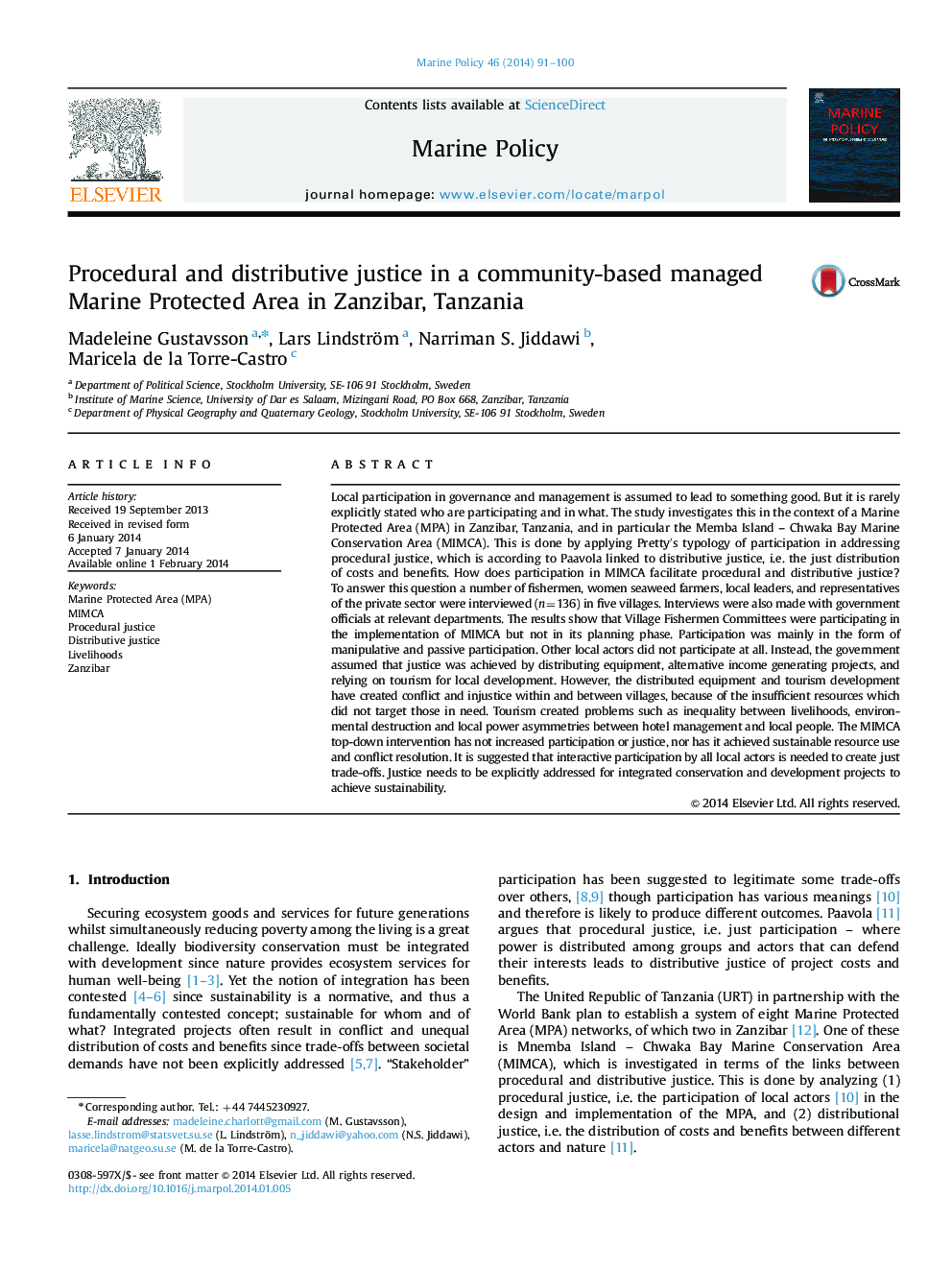| کد مقاله | کد نشریه | سال انتشار | مقاله انگلیسی | نسخه تمام متن |
|---|---|---|---|---|
| 1060411 | 1485533 | 2014 | 10 صفحه PDF | دانلود رایگان |
• The article investigates procedural and distributive justice in a Marine Protected Area (MPA).
• Neither procedural justice nor distributive justice has been achieved.
• Women are excluded from the management of the MPA.
• Self-organization at village level causes injustice between villages.
• Distribution of material resources creates injustices within and between villages.
Local participation in governance and management is assumed to lead to something good. But it is rarely explicitly stated who are participating and in what. The study investigates this in the context of a Marine Protected Area (MPA) in Zanzibar, Tanzania, and in particular the Memba Island – Chwaka Bay Marine Conservation Area (MIMCA). This is done by applying Pretty's typology of participation in addressing procedural justice, which is according to Paavola linked to distributive justice, i.e. the just distribution of costs and benefits. How does participation in MIMCA facilitate procedural and distributive justice? To answer this question a number of fishermen, women seaweed farmers, local leaders, and representatives of the private sector were interviewed (n=136) in five villages. Interviews were also made with government officials at relevant departments. The results show that Village Fishermen Committees were participating in the implementation of MIMCA but not in its planning phase. Participation was mainly in the form of manipulative and passive participation. Other local actors did not participate at all. Instead, the government assumed that justice was achieved by distributing equipment, alternative income generating projects, and relying on tourism for local development. However, the distributed equipment and tourism development have created conflict and injustice within and between villages, because of the insufficient resources which did not target those in need. Tourism created problems such as inequality between livelihoods, environmental destruction and local power asymmetries between hotel management and local people. The MIMCA top-down intervention has not increased participation or justice, nor has it achieved sustainable resource use and conflict resolution. It is suggested that interactive participation by all local actors is needed to create just trade-offs. Justice needs to be explicitly addressed for integrated conservation and development projects to achieve sustainability.
Journal: Marine Policy - Volume 46, May 2014, Pages 91–100
